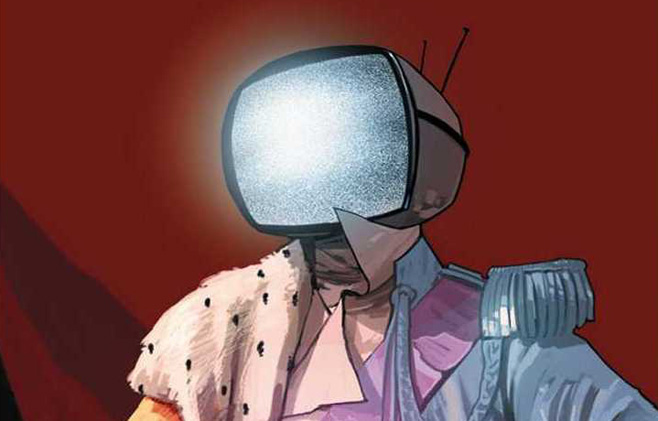
Sometimes I get into one of those conversations about the Internet where the only way I can reply is to quote from The IT Crowd: "Are you from the past?" I say that every time someone asserts that the online world is somehow separate from real life. You'd be surprised how much this comes up, even after all these years of people's digital shenanigans leading to everything from espionage and murder to international video fame and fancy book deals.
But now that the U.S. has a president-elect who communicates with the American people almost exclusively via Twitter and YouTube, it's really time to stop kidding ourselves. Before the election, many of us (including me) would have shrugged off the fake news stories piling up in the margins of our Facebook feeds. Nobody takes that stuff seriously, right? The election of Donald Trump and several recent tweets from the House Science Committee are two strong pieces of evidence that, yes, people do. In reality, politics have straddled the digital and meatspace for decades. Though government officials may have just learned about "the cyber," people working in computer security have been dealing with criminal and whimsical incursions into their systems since the late 20th century. It was 1990 when the infamous Operation Sundevil swept up innocents in a massive Secret Service dragnet operation to stop carders. The Stuxnet worm, which affected physical operations of centrifuges at a uranium enrichment plant in Iran, is only the most obvious example of how digital ops can have consequences away from the keyboard. As security researcher Morgan Marquis-Boire said during a recent Ars Live event, it’s absurd to talk about “digital authoritarianism” because these days state-sponsored surveillance and censorship always have a digital component. Nothing makes this more obvious than the little chunks of online identities we all carry in our pockets all the time. If a police officer confiscates your mobile, they could gain access to everything you’ve texted to your friends. If state agents want to track your movements by looking up which cell towers your mobile has pinged, they can. If a criminal snags it, they could drain your bank accounts.The Internet of things, fondly known as the Internet of extremely broken and insecure things, makes this whole situation even worse. Our homes, our baby monitors, our cars, our offices, and even our city infrastructure are vulnerable to malicious attacks—or just trollish tinkering, like the recent bus system hack in San Francisco that took down the smart card system and made bus rides free on Thanksgiving Day. The more we network every last object in our lives, the more our physical reality depends on the integrity of computer networks.
Our social lives are networked, too. As I mentioned earlier, plenty of evidence suggests that social media news was a major factor in President-Elect Trump's surprise win. But we can also see the real-world power of social media in the explosion of troll culture, whether we're talking about teens bullying each other to suicide, angry mobs driving people off Twitter with death threats, or maniacs swatting Twitch gamers. The point is, people are harmed in a fundamental way by online trolls. Nobody can "go offline" to get away from haters, because those haters can erupt into real life at any moment.
Telling someone to go offline to get away from trolls is like telling them to stop leaving the house. Maybe it's safer in there, but you can't survive if you never leave. Many people need to be online to do work, attend school, and get important information. We literally can't find out what our president-elect is saying if we don't log into Twitter once in a while. "Going offline" isn't a real option anymore.
As we continue forward into the twenty-first century, we need to take seriously the fact that every aspect of our lives has an online component, whether we like it or not. There is no such thing as an exclusively online movement or social experience. Our real lives, what we do in the streets, are wired into computer networks. The way those networks are run and the rules that govern them are explicitly political.
That means our civic responsibilities don't end the instant we log into Snapchat or Reddit. What we do online matters. It can change the course of people's lives and shift the balance of power in a nation. The sooner we take responsibility for what that means, the better.
reader comments
308